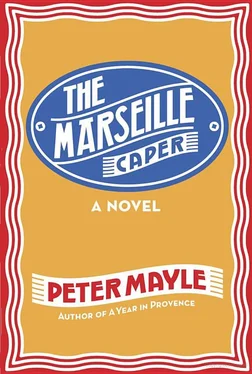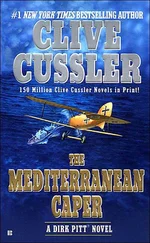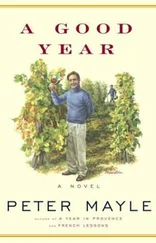Peter Mayle - The Marseille Caper
Здесь есть возможность читать онлайн «Peter Mayle - The Marseille Caper» весь текст электронной книги совершенно бесплатно (целиком полную версию без сокращений). В некоторых случаях можно слушать аудио, скачать через торрент в формате fb2 и присутствует краткое содержание. Жанр: Криминальный детектив, на английском языке. Описание произведения, (предисловие) а так же отзывы посетителей доступны на портале библиотеки ЛибКат.
- Название:The Marseille Caper
- Автор:
- Жанр:
- Год:неизвестен
- ISBN:нет данных
- Рейтинг книги:5 / 5. Голосов: 1
-
Избранное:Добавить в избранное
- Отзывы:
-
Ваша оценка:
- 100
- 1
- 2
- 3
- 4
- 5
The Marseille Caper: краткое содержание, описание и аннотация
Предлагаем к чтению аннотацию, описание, краткое содержание или предисловие (зависит от того, что написал сам автор книги «The Marseille Caper»). Если вы не нашли необходимую информацию о книге — напишите в комментариях, мы постараемся отыскать её.
The Marseille Caper — читать онлайн бесплатно полную книгу (весь текст) целиком
Ниже представлен текст книги, разбитый по страницам. Система сохранения места последней прочитанной страницы, позволяет с удобством читать онлайн бесплатно книгу «The Marseille Caper», без необходимости каждый раз заново искать на чём Вы остановились. Поставьте закладку, и сможете в любой момент перейти на страницу, на которой закончили чтение.
Интервал:
Закладка:
“Marseille is an extraordinary city,” he began. “It was established more than twenty-six hundred years ago, before Paris was even called Paris. And it’s big. The Marseille of today covers twice as much land as Paris. But, as you would imagine, the land along the coast of Marseille-land, as we say, with its feet in the Mediterranean-has almost all been developed.” Reboul paused to take a sip of champagne. “Except for one charming little bay, the Anse des Pecheurs, to the east of the old port. I won’t bore you with the history of why it was never developed, except to say that for a hundred and twenty years it has been fought over and disputed by generations of city politicians and construction companies. There have been bribes, counter-bribes, court cases, and, so they say, at least one killing. But two years ago, at last, a decision was made to develop the Anse des Pecheurs. It is a project very close to my heart, and I have already spent a great deal of time and money on it, but …”
The arrival of the crab cakes caused Reboul to stop, tuck a napkin into his shirt collar, try the white Chateauneuf, and compliment Sam on his choice.
“Tell me,” asked Sam, “what happened to help all these guys finally make up their minds after a hundred and twenty years?”
Reboul took a longer, more considered sip of the Chateauneuf, holding it in his mouth and nodding his approval before replying. “Back in 2008, Marseille was voted European Capital of Culture for 2013, with the aim, to use the official language, of ‘accelerating development.’ I think that was the final push. At any rate, bids and ideas for developing the Anse were invited, and eventually a shortlist was drawn up of three proposals. One of them-the best, in my opinion-is mine. Also, my two competitors suffer from a disadvantage: they are foreigners, a group from Paris and an English syndicate. Neither of them has shown any imagination. Both want to build big hotels with all the modern trimmings-rooftop pools, spas, luxury shopping malls, the same tired old ideas. Fine for tourists, maybe, but not so good for the people who live in Marseille. And the buildings will undoubtedly be ugly concrete-and-glass boxes.” He wiped the last of the avocado puree from his plate with a piece of bread and dabbed at his mouth with his napkin.
“We have a few of those here in L.A.,” said Elena. “So what’s your idea?”
“Ah,” said Reboul, “something for the Marseillais. Apartments-but low, nothing higher than three floors-set in a terraced garden leading down to the sea. And then, a small marina, not for yachts but for the kind of little boats that ordinary people who live by the sea might have. I can show you the scale model of the project when we get to Marseille.” He looked from Sam to Elena, his eyebrows raised. “ Et voila . What do you think?”
“Sounds a lot better than concrete boxes.” Sam grinned. “But I have a feeling there might be more to this than architecture.” He leaned back as the waiter arrived with their main course.
Reboul sighed. “Just so. There is a problem.” He looked down at the plate that had been placed in front of him, and lowered his head for a closer inspection, inhaling deeply. “But before I explain, let us deal with this excellent rabbit.”
The excellent rabbit was duly dealt with, the Beckstoffer Cabernet tasted, admired, and tasted again, and the conversation drifted pleasantly from winemaking to the charms of Cassis (Marseille’s neighborhood vineyard) and on to the latest bee in Elena’s bonnet. She had recently completed a wine course, and had been subjected by the rather patronizing instructor to the overblown vocabulary so beloved by wine experts.
“I’m sure the guy knew his stuff,” she said. “And I can just about put up with pencil shavings and truffle oaks and hints of tobacco-although God knows who would want to drink pencil shavings-but I gave up when he started talking about wet dogs.” She looked at Reboul, her dark eyes wide with mock horror. “You don’t have wines that taste like wet dogs, do you?”
Reboul shook his head and laughed. “I once heard a winemaker describe his wine as ‘Comme le petit Jesus en pantalon de velours’ -like Jesus in velvet trousers.” He shrugged. “Winemakers are great enthusiasts. One must forgive their little exaggerations, I think. They are trying to describe something that is often indescribable.”
The cheese arrived-three different cheeses, in fact-with a generous dollop of fig jam, and Reboul returned to his proposal. “There is, as I said, a problem, and his name is Patrimonio. Jerome Patrimonio. He is the chairman of the committee that will choose the winning project, and as chairman he has, of course, more than just the influence of his personal vote.” Reboul rearranged the cheeses on his plate while he tried to collect his thoughts. “Patrimonio hates me. He would do anything to stop me from winning. Anything.”
Elena was the first to ask the obvious question. “Forgive me, but what did you do to him? Why does he hate you?”
“Ah.” Reboul shook his head and sighed. “There was a woman.” He looked at Elena as if, between sophisticated adults, that should be sufficient explanation. “And such a woman, too.” The distant memory brought a half-smile to his face. “A long time ago, it’s true. But Patrimonio is Corsican.” Again, the significant look. “He is proud, like all Corsicans. And he has a very long memory, like all Corsicans.”
“Let me get this straight,” said Sam. “You know that this guy, who hates your guts, is the chairman of the committee. And yet you still think you have a chance?”
“You must let me finish, Sam. Patrimonio doesn’t know I’m involved. My name does not appear on any of the bid documents, and I was careful not to involve any French companies that could be easily checked. My proposal was officially put forward by Langer amp; Troost, a very old and discreet Swiss private bank, and Van Buren Partners, a firm of American architects owned by Tommy Van Buren, who is an old, close friend of mine; we were at Harvard together. It is the international marketing representative of Van Buren who will make the final presentation to the committee. And there, my dear Sam, is where I hope you will make your appearance.”
“As an architect who knows nothing about architecture? And an American, a foreigner, as well?” Sam shook his head. “I don’t know, Francis. I think I may be short of a few qualifications.”
Reboul disposed of such trifling concerns with a flick of his hand. “At this stage, it is not necessary to have any great knowledge of architecture. That will come later. But at the moment, we’re selling an idea: somewhere for people to live, not just somewhere for them to visit. Something unique to Marseille, that respects the environment, that exists in harmony with the sea …”
Sam held up his hand. “OK. That could work. It’s a nice, straightforward pitch. But why me? Why not have someone from Van Buren do it?”
Reboul leaned back, spreading his arms wide, a smile on his face. “I need someone special-a top-class salesman; persuasive, charming, tactful. Which is exactly what you were in your previous career as a publisher. Remember?” He inclined his head toward Sam. “You fooled me. You could fool them.”
Sam finished the wine in his glass and let Reboul pour some more. “Even though I’m a foreigner?”
“But Sam, there are foreigners and foreigners.” Reboul held up one finger. “In Marseille, we have loathed Parisians for centuries. It’s in our blood.” He held up a second finger. “The English we tolerate. But since France is only separated from them by the Channel, they are a little too close, and they tend sometimes to get underfoot.” He held up a third finger. “The Americans we like, not only for their many virtues, but also because America, most conveniently, is a long way away. So I think my project starts with a slight advantage.”
Читать дальшеИнтервал:
Закладка:
Похожие книги на «The Marseille Caper»
Представляем Вашему вниманию похожие книги на «The Marseille Caper» списком для выбора. Мы отобрали схожую по названию и смыслу литературу в надежде предоставить читателям больше вариантов отыскать новые, интересные, ещё непрочитанные произведения.
Обсуждение, отзывы о книге «The Marseille Caper» и просто собственные мнения читателей. Оставьте ваши комментарии, напишите, что Вы думаете о произведении, его смысле или главных героях. Укажите что конкретно понравилось, а что нет, и почему Вы так считаете.











